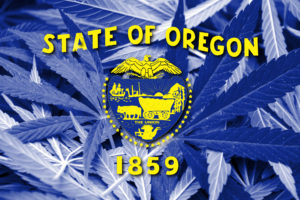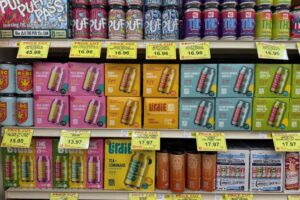 Last week, the departing Food and Drug Administration (“FDA”) Commissioner, Scott Gottlieb, released a statement in which he announced that the agency, in collaboration with the Federal Trade Commission (“FTC”), had issued warning letters to three CBD manufacturers: Advanced Spine and Pain LLC (d/b/a Relievus), Nutra Pure LLC and PotNetwork Holdings Inc.. The letters were sent “in response to their making unsubstantiated claims related to more than a dozen different products and spanning multiple product webpages, online stores and social media websites.” According to Gottlieb’s statement, the companies used these online platforms to make:
Last week, the departing Food and Drug Administration (“FDA”) Commissioner, Scott Gottlieb, released a statement in which he announced that the agency, in collaboration with the Federal Trade Commission (“FTC”), had issued warning letters to three CBD manufacturers: Advanced Spine and Pain LLC (d/b/a Relievus), Nutra Pure LLC and PotNetwork Holdings Inc.. The letters were sent “in response to their making unsubstantiated claims related to more than a dozen different products and spanning multiple product webpages, online stores and social media websites.” According to Gottlieb’s statement, the companies used these online platforms to make:
…unfounded, egregious claims about their products’ ability to limit, treat or cure cancer, neurodegenerative conditions, autoimmune diseases, opioid use disorder, and other serious diseases, without sufficient evidence and the legally required FDA approval.”
The warning letters were released just a few days following Gottlieb’s testimony to a Senate subcommittee, in which he announced that his agency would use enforcement discretion against CBD product manufacturers who are making “over-the-line claims.”
Due to its limited resources, the FDA has chosen to focus enforcement actions against manufacturers who sell and advertise CBD products with unsubstantiated therapeutic claims that may put consumers at risk. Specifically, the agency fears that
These products have not been shown to be safe or effective, and deceptive marketing of unproven treatments may keep some patients from accessing appropriate, recognized therapies to treat serious and even fatal diseases.”
Although the warning letters set forth specific examples of claims made by the targeted companies, questions remain regarding what amounts to “unauthorized claims” that would put CBD companies at risk of enforcement actions. These questions will most certainly be addressed during the FDA’s upcoming public hearing on CBD scheduled for May 31. The public hearing will provide stakeholders an opportunity to share their thoughts on potential pathways by which CBD products may be legally sold and marketed. The FDA has expressed an interest in collecting comments, data and information on the following topics:
- Health and safety risks: Based on what is known about the safety of products containing cannabis and cannabis-derived compounds, are there particular safety concerns that FDA should consider regarding its regulatory oversight and monitoring of these products?
- Manufacturing and product quality: Are there particular standards or processes needed to ensure manufacturing quality and consistency of products containing cannabis or cannabis-derived compounds, including standards applied to evaluate product quality?
- Marketing, labeling and sales: How should consumers be informed about the risks associated with such products (e.g., directions for use, warnings)? What specific risks should consumers be informed about? Are there any subpopulations for which additional warnings or restrictions are appropriate?
For a complete list of questions and topics identified by the FDA, see here.
The agency hopes that the comments received during the public hearing will assist the recently formed “high-level internal agency working group” in exploring potential pathways for dietary supplements and/or conventional foods infused with CBD to be lawfully marketed. Although the FDA recognizes that it will take time to fully resolved this complex issue, the agency is hopeful that the working group will begin sharing its findings with the public as early as this summer. Until then, CBD companies should refrain from making any health claims that highlight the therapeutic value of their products.























